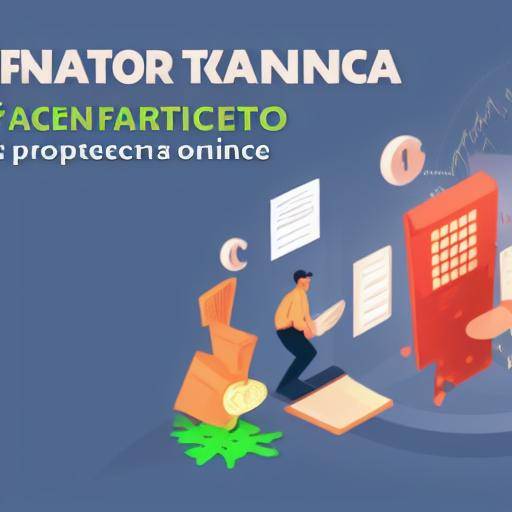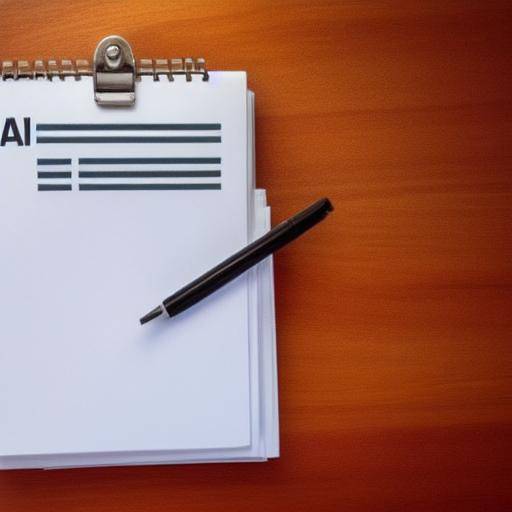
Inflation is a fundamental economic phenomenon that has a profound impact on our personal finances. To understand its scope, it is crucial to understand how inflation can erode the value of money, directly affect our purchasing power and ultimately influence our financial decisions.
In this article, we will explore various sources that analyze the impact of inflation on our finances. These sources will provide valuable information on how to protect our heritage and ensure a stable financial future. Through a thorough analysis, practical advice and expert opinions, we will discover strategies to mitigate the effects of inflation and strengthen our personal finances.
History and Background
Inflation has been a relevant issue throughout economic history, with significant impacts on the finances of people and nations. From the first inflationary crisis to the evolution of monetary policies, understanding the evolution of inflation and its importance in the financial context is essential.
Inflation dates back to ancient Rome, where the devaluation of the currency provoked increases in economic prices and disturbances. In the modern era, events such as hyperinflation in Germany in the 1920s and inflation in the United States during the 1970s demonstrated how inflation can destabilize entire economies. These historical lessons underline the importance of monitoring and managing inflation to protect personal economy and finance.
Analysis in Deep
Let us deepen the current benefits, challenges and trends related to inflation. Through statistics, case studies and examples of real life, we will examine current perspectives and strategies to address inflation in our personal finances.
Benefits of Inflation
Although inflation is generally perceived as negative, it may have certain benefits at moderate levels. Inflation can boost spending and investment, as people prefer to spend today instead of saving and losing purchasing value. Moreover, it can reduce the debt burden, as the real value of debts diminishes over time.
Inflation Challenges
However, the challenges of inflation are significant. High and persistent inflation can erode purchasing power, making it difficult for people to maintain their standard of living. In addition, it can generate economic uncertainty, discourage savings and complicate long-term financial planning.
Current trends
Currently, many countries face inflationary challenges due to factors such as the COVID-19 pandemic, supply chain disruptions and expansive monetary policies. These trends have highlighted the importance of effective strategies to protect personal finances from inflation.
Comprehensive review
We will explore practical applications, collecting examples and best practices supported by the opinion of finance experts. We will compare different methods and approaches, providing a thorough analysis of the pros and cons in the fight against the erosion of the value of money.
Investments in Real Assets
A common strategy to protect against inflation is to invest in real assets such as real estate and raw materials. These assets tend to maintain their value or even appreciate in inflationary environments, providing a safe haven for the capital.
Investments in Bonuses Adjusted by Inflation
The inflation-adjusted bonds, such as TIPS (Treasury Inflation-Protected Securities) in the United States, offer a way to protect against inflation. These bonds adjust their main value and interest payments based on changes in the consumer price index (IPC), ensuring that returns maintain their purchasing power.
Comparative analysis
Throughout this segment, we will analyze and contrast value, protection and the future in the context of inflation. We will examine similarities, differences and possible synergies, offering detailed examples and relevant scenarios.
Comparison between Real Assets and Financial Assets
While real assets such as real estate can provide protection against inflation, financial assets such as actions can also be effective. Companies with pricing power can transfer inflationary costs to consumers, thus maintaining their profit margins.
Practical Tips and Actions
We will provide practical advice and concrete actions to protect our finances from the impact of inflation. This segment will include lists with vineyards and step-by-step guides to ensure clear understanding and effective implementation.
- Diversify Investments: Diversify between real and financial assets to balance risk and profitability.
- Monitoring Inflation: Stay informed about inflation rates and adjust financial strategies accordingly.
- Adjusting the Budget: Review and adjust the personal budget regularly to reflect changes in the cost of living.
Perceptions of Industry and Expert Reviews
We will gather and present expert ideas on the subject, discussing future implications and analysing the trends and forecasts of the financial industry.
Reviews of Economistas
Experts such as the Nobel Prize in Economics, Paul Krugman, and economist Nouriel Roubini, have highlighted the importance of adequate monetary policies to control inflation and protect the economic well-being of citizens.
Case Studies and Real Life Applications
Through detailed case studies, we will review the practical applications of strategies to counter the effects of inflation. We will analyze the results and lessons learned to enrich our understanding.
Case Study: Heritage Protection during Hyperinflation
An example of success is the case of investors in Zimbabwe during the hyperinflation of the 2000s. Those who invested in tangible assets such as gold and properties managed to protect and preserve their wealth despite the collapse of the value of the local currency.
Future Trends and Predictions
Finally, we will explore emerging trends related to the impact of inflation on the value, protection and future of our finances. Based on current data and expert opinions, we will discuss challenges and opportunities ahead.
The Future of Personal Inflation and Finance
With the growing digitalization of the economy and changes in global monetary policies, inflation will continue to be a crucial factor in personal financial management. The adoption of cryptocurrencies and other emerging technologies could provide new ways of protecting against inflation in the future.
Conclusion and Frequently Asked Questions
In conclusion, we will summarize the key points of the article, stressing the value of the information provided and providing a solid statement that encourages further reflection or action. In addition, we will answer frequent questions that address relevant aspects of inflation and its impact on our personal finances.
Frequently asked questions
- What is inflation and how does it affect me?
- Inflation is the widespread increase in prices of goods and services in an economy. It affects the purchasing power of your money, making you buy less with the same amount of money.
- How can I protect my savings against inflation?
- Investing in assets that tend to maintain their value during inflationary periods, such as real estate, stocks of solid companies and bonds adjusted for inflation.
- What role do interest rates play in inflation?
- High interest rates can help control inflation by increasing credit and reducing spending, while low rates can stimulate the economy but also increase inflation.
- How does inflation affect my investments?
- Inflation can erode the real value of your investments. However, certain types of assets, such as stocks and real estate, can provide protection against inflation.
- What strategies can I implement today to prepare for future inflation?
- Diversify your investment portfolio, stay informed about economic trends and adjust your budget regularly to reflect cost-of-living changes.
With this article, we hope to provide a solid understanding of the impact of inflation on our finances, as well as concrete strategies to protect our heritage and ensure a stable financial future. Join us on this journey to strengthen our financial skills and make more informed decisions.






















































